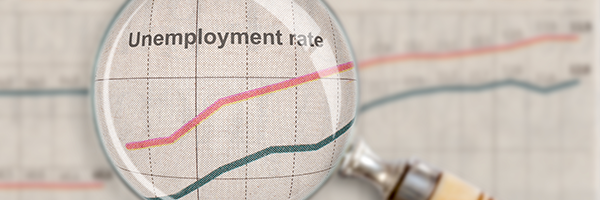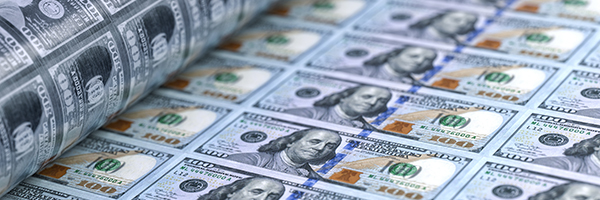
August 8, 2021 | Daily JAM |
On Friday, after the strong July jobs report, stocks said that the “re-opening” economy is going strong. That the Federal Reserve would see the July jobs report as a reason to raise interest rates. That inflation is likely to strengthen. On those conclusions the yield on the 10-year Treasury rose (7 basis points) to 1.30%. Bank stocks, which move up when interest rates do, climbed. “Re-opening” stocks such as Macy’s (M) gained with Macy’s shares up 6.24% on the day. Defensive stocks such as Chipotle (CMG), and PetMed Express (PETS) fell 0.68% and 0.82%, respectively. And tech stocks, the recent favorite sector when the economy looks shaky, fell with the NASDAQ 100 down 0.48%. What we’ll see next week if whether these convictions hold–and whether or not investors start to question Friday’s certainty.

August 6, 2021 | Daily JAM, Morning Briefing, Short Term |
This morning the Labor Department released its July jobs report. It showed a gain in non-farm payrolls of 943,000 against 938,000 in June and the 865,000 projected by economists surveyed by Bloomberg. The headline unemployment rate fell to 5.4% from 5.9% in June and a projected 5.7%. But there are good reasons for reading these numbers with even more care than usual.

August 4, 2021 | Daily JAM, Mid Term, Morning Briefing |
I wouldn’t call it the consensus yet, but financial market thinking seems headed toward a belief that the end of the Fed’s $120 billion a month in purchases of Treasuries and mortgage backed assets won’t be a big deal. Certainly not enough to upset the bond market or produce another temper tantrum. The belief hinges on forecast of demand and supply that sees them roughly in balance even after the Fed stops its buying. An end to Fed purchases would be a significant hit to demand. But it looks like the U.S. Treasury will be cutting back on bond auctions as about the same time. And that would leave demand and supply roughly where they are now.

July 28, 2021 | Daily JAM, Morning Briefing |
No change. But change coming someday. (Not soon, though.) That was the message from today’s meeting of the Federal Reserve’s Open Market Committee.

July 13, 2021 | Daily JAM, Morning Briefing, Short Term |
The Federal Reserve has said that the current jump in inflation is temporary, a result of post-pandemic glitches in the supply chain. So far the market is going along with that view. But huge jumps in monthly inflation in May and now, this morning, June are treating that confidence.
The consumer price index (CPI) rose 0.9% in June from May and by 5.4% from June 2020, according to the Labor Department today. Excluding more volatile food and energy components, core CPI inflation rose by 4.5% from June 2020. That’s the biggest jump in core inflation since November 1991.

June 25, 2021 | Daily JAM, Morning Briefing |
The Personal Consumption Expenditures index, the Federal Reserve’s preferred inflation measure rose 0.4% in May to an increase of 3.9% from May 2020. The core rate, which excludes food and energy prices, climbed at a 3.4% rate from May 2020. That was the highest annual rate since 1991.

June 24, 2021 | Daily JAM, Morning Briefing |
The job market is improving, but the rate of improvement is tantalizingly slow. New weekly jobless claims in regular state unemployment programs fell for the week ended on June 19 to 411,000. Economists had expected a drop to 380,000. The prior week saw a (revised) 418,000 new claims.

June 20, 2021 | Daily JAM |
The question for Monday and for the week ahead is whether stocks will pull back further on the Fed news or whether the market’s propensity to bounce back well before a slight dip can turn into even a 5% pullback will reassert itself.

June 18, 2021 | Daily JAM, Morning Briefing |
Yesterday, growth stocks climbed in the face of signals from the Federal Reserve on Wednesday that interest rates increase were coming sooner–as soon as the end of 2022–than expected. That seemed puzzling. May be, one line of thought (mine) had it, investors and traders decided that growth stocks would outrun any increase in interest rates that might take place in 2022 or 2023. Today, we got the selling that many had expected yesterday

June 17, 2021 | Daily JAM, Morning Briefing |
The Standard & Poor’s 500 was basically flat with a loss of just 0.04% as of the close today. If you want ACTION!!! you have to look elsewhere: To the NASDAQ Composite, which was up 0.87% as of the close and to the small cap Russell 2000, which was down 1.18% at the finish.

June 16, 2021 | Daily JAM, Morning Briefing |
The rhetoric was the same after today’s meeting of the Federal Reserve’s Open Market Committee: “Inflation has risen, largely reflecting transitory factors.” But the Dot Plot that tracks projections by the committee’s 18 members told a very different story: There’s more reason to expect an earlier increase in interest rates than back in March.

June 15, 2021 | Daily JAM |
The Federal Reserve is facing a “can’t win” situation on inflation as chair Jerome Powell prepares his post-meeting statement for tomorrow.














